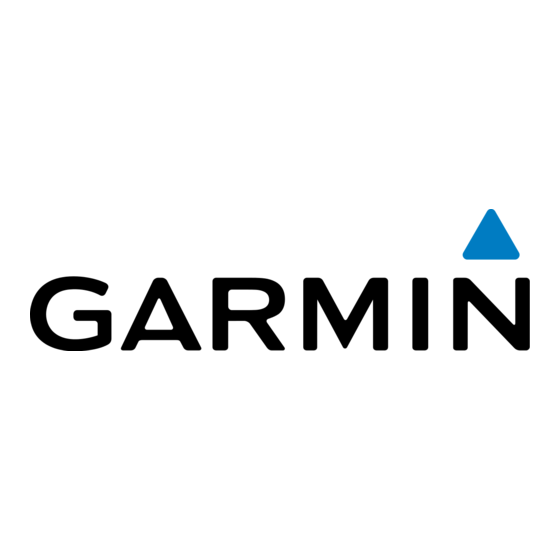GFS 10 (Garmin Fuel Sensor)
CautioN: The GFS 10 is a sensor that helps you better determine the amount of fuel used on your boat; you should not rely solely on the GFS 10 for
fuel-level information. Carefully compare information displayed on the unit to all available fuel-level instruments and sources.
Using Fuel-Flow Information With a Garmin Chartplotter or Marine Instrument
CautioN: The Garmin chartplotter or marine instrument must be powered on to calculate remaining fuel based on the fuel-flow rate.
important: When using the GFS 10 to calculate remaining fuel based on the fuel-flow rate, you must specify the amount of fuel each time you
add fuel to the tank.
To specify the amount of fuel added:
1. While viewing the fuel page or fuel instrument screen on your NMEA 2000 device, select Menu.
2. Choose from the following options:
•
Fill Up
Tank—set fuel level to the maximum capacity.
•
Add Fuel to
Boat—specify the amount of fuel added.
•
Set Total Fuel
Onboard—specify the amount of fuel currently available in the fuel tank or tanks.
Changing the Fuel Economy Source
The Garmin chartplotter or marine instrument requires a speed sensor in addition to the GFS 10 to calculate fuel economy.
To change the fuel economy source:
1. While viewing the fuel page or fuel instrument screen on your NMEA 2000 device, select
2. Select either
GPS Speed
Using Fuel-Level Information With a Garmin Chartplotter or Marine Instrument
To receive fuel-level information, connect the wiring harness on the GFS 10 to the fuel gauge or fuel-level sensor of your boat according to the
GFS 10 Installation Instructions.
To calibrate fuel-level information from the GFS 10:
1. While in still water, on the NMEA 2000 device configuration menu, select the GFS 10 device that is connected to the fuel tank you want to
configure.
tiP: The serial number of each GFS 10 is shown on the NMEA 2000 device configuration screen to help differentiate among multiple GFS 10 devices.
2. Select
Config
>
Level Calibration
fuel tank.
Entering more calibration points will provide a more-accurate reading. For example, entering five calibration points (empty tank, 1/4 tank, 1/2
tank, 3/4 tank, and full tank) will provide a more-accurate reading than entering two calibration points (empty tank and full tank).
tiP: For a quick calibration, start with an empty tank, and enter calibration points as you fill up the tank.
To reset the fuel-level calibration:
1. While viewing the NMEA 2000 device configuration menu, select the GFS 10 device that is connected to the fuel tank you want to configure.
2. Select
Config
>
Level Calibration
Technical Reference for Garmin NMEA 2000 Products
or
Water Speed
to specify which speed sensor is used to calculate fuel economy.
>
Add Calibration Point
>
Reset
Calibration.
Menu
and enter a calibration point that corresponds to the current fuel level in that
NMEA 2000-Certified Sensor Configuration Information
>
Fuel Economy
Source.

